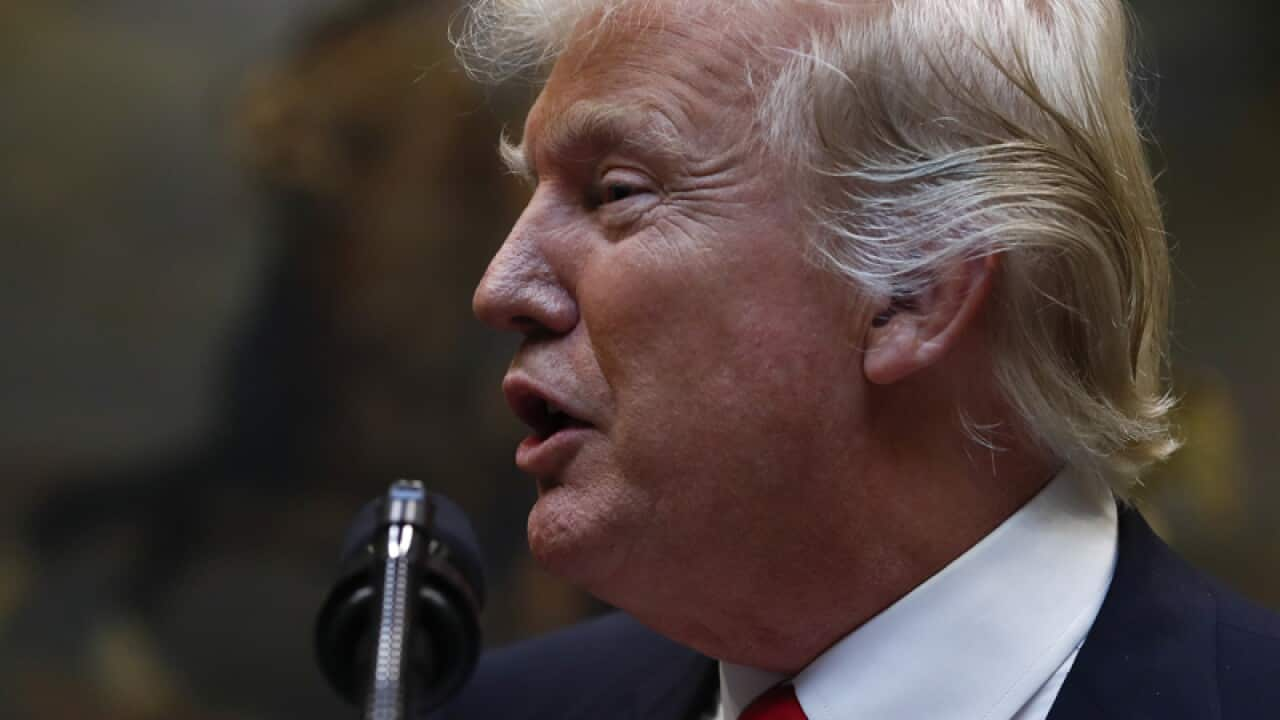Underlining US loyalty to its old friends, Pence told European leaders and defence experts: "The United States is and will always be your greatest ally."
"Be assured that President Trump and our people are truly devoted to our transatlantic union," he said at the Munich Security Conference.
Trump's criticism of NATO as "obsolete", his praise for Britain's decision to leave the European Union, and his softer approach towards Russia have unnerved Washington's allies.
Related reading

Embattled Trump returns to strong suit: campaigning
But Pence and other members of Trump's administration - Defence Secretary Jim Mattis and Secretary of State Rex Tillerson - stuck largely to the foreign policy rule book in a major European diplomatic foray this week.
On Russia, the US would not relent in pushing it to honour the Minsk ceasefire accords with Ukraine, said Pence.
"The United States will continue to hold Russia accountable, even as we search for new common ground, which as you know, President Trump believes can be found," the vice-president said.
And Tillerson said the US would cooperate with Moscow but only when doing so "will benefit the American people".
On NATO, Mattis emphasised that America remained "rock solid" in its support of Article 5 - the alliance's core "one for all, all for one" collective defence tenet.
'Not a word on the EU'
In response, German Foreign Minister Sigmar Gabriel said he "had no doubt that the American vice-president and the defence secretary will do everything to fulfil their commitments to NATO as in the past."
But pressed for his view on Trump, Gabriel was terse. "I can only say what I have spoken about with Mr Pence. And that I have done and on that I have no doubt."
French Foreign Minister Jean-Marc Ayrault said he was "struck that [Pence] had not at any moment mentioned the EU."
"I don't want to accuse Pence prematurely; he is going to Brussels on Monday and I hope that we will have a clear response on this question because Donald Trump gave the impression that he welcomes Brexit and that there would be more to come," said Ayrault.
"The future will give more clarity on all the issues ... I don't believe in everyone for himself, in solving questions through force or through deals."
Related reading

Trump calls media 'enemy of the American people'
US politicians in attending the conference in Munich pointed to a chasm between what Trump's envoys and the president himself said.
"Looks like we have 2 governments," Democrat Senator Chris Murphy said in a tweet.
Pence spoke about "shared values between the US and Europe [but Trump] openly wages war on those values".
German Chancellor Angela Merkel made no direct mention of Trump in her address in Munich.
She however, championed a clear message of international cooperation rather than the feared isolationism of the president's "America First" strategy.
"In a year in which we see unimaginable challenges we can either work together or retreat to our individual roles. I hope that we will find a common position," she said.
'Post-West world order'
Amid the turmoil, Russia stepped in to call for an end to what it called an outdated world order dominated by the West.
Russian Foreign Minister Sergei Lavrov said he hoped the world "will choose a democratic world order - a post-West one - in which each country is defined by its sovereignty."
The time when the West called the shots was over while NATO was a relic of the Cold War, he said.
In its place, Moscow wanted a relationship with Washington that is "pragmatic with mutual respect and acknowledgement of our common responsibility for global stability".
Moscow has been impatiently waiting for Trump to make good on his pledge to improve ties which plunged to a post-Cold War low as Barack Obama slapped on sanctions over the Ukraine crisis and Russia's alleged meddling in Trump's election.
On the campaign trail, Trump repeatedly praised Russian President Vladimir Putin and voiced his willingness to work with him in fighting terrorism.
But in the face of growing controversy over its links to Moscow, Trump's administration appears to be backing off the warmer words used earlier for the former Cold War foe.





